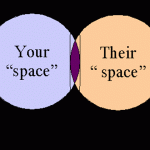You know your relationship is a good one if it is fulfilling and helps you become a better person. But if you’re trapped in an unhealthy one, it could thrust you into a vicious cycle and profoundly affect your entire life. To prevent a relationship from wreaking havoc on your well-being, here are a few pointers that can help you check if you are in an unhealthy relationship.
1. Conversations
- Conversations seem like a chore
You know it’s not working if you start avoiding activities or interactions with your partner where you actually have to speak with each other. If you feel that talking to your partner is tedious and wearing, then perhaps the two of you are not that great of a fit for each other.
Image source: Shutterstock
- Insults and taunts are commonplace
If your partner does not miss an opportunity to make fun of you – not once in a while, playfully, but almost every day with spiteful barbs – then can you still be proud of your relationship?
Image source: Shutterstock
- Arguments outnumber heart-to-hearts
It is completely natural for couples to fight – most do, and some even have mock fights for fun. But if you seem to be disagreeing on everything, or if you are picking fights intentionally, it might be time to start wondering if anything has gone wrong.
2. Together time
- Spending time with your partner stresses you out
Increased stress levels in your partner’s presence and sleepless nights are certainly not what healthy relationships are made of. Time spent with a special someone should be relaxing and a stress-buster, not the opposite.
Image source: Shutterstock
- Clinginess or possessiveness
If you’re jealous every time they make plans with someone else, then you should be putting a check on your own behavior instead of overanalyzing theirs. You don’t have to go with them everywhere they go, nor do you have to check up on them every 20 minutes. Clinginess and possessiveness are usually symptoms of larger, more serious issues taking root.
- If you avoid spending time with your partner
Are you working so that you don’t have to face your spouse at home? Do you choose to go out with friends on weekends more often than going on dates with your significant other? When you intentionally start spending less time with your partner, you should be asking yourself why.
Image source: Shutterstock
- If you’re not spending time with other people
While not spending time with your partner can spell trouble, so can spending too much time with them. The honeymoon period can easily lead you to feel as if you’re in paradise and don’t need anyone else, but that sounds more like a toxic relationship that won’t work out in the long term.
3. Personal well being
- Constant worry about minor issues
Your partner’s opinions should matter, but not to the extent that you worry about their reactions to even the most miniscule issues. Worrying and fretting about your partner’s approval for everything you do is not symptomatic of a mutually supportive relationship.
Image source: Shutterstock
- Fearful dishonesty
Does the presence of your partner scare you? If they can bully you at will, and make you fearful of them, then your relationship is certainly not right. No one should be in a relationship where you’re unable to be your genuine self and speak to them honestly about the issues you are facing.
- Being no longer able to cater to your own needs
While accommodating for your partner’s needs is important for a smooth relationship, it’s equally critical that you get the space and time to take care of your own. If all your time is spent in trying to please your partner by doing whatever they want, how will you be able to grow? Relationships are an equal exchange. Your partner should have as much concern for your needs as you have for theirs.
As with everything else, relationships are all about balance. It all comes down to the one rule – if you don’t feel like an equal within a serious relationship in terms of how much you give and take, then you should probably let it go.
Featured image source: Shutterstock
















